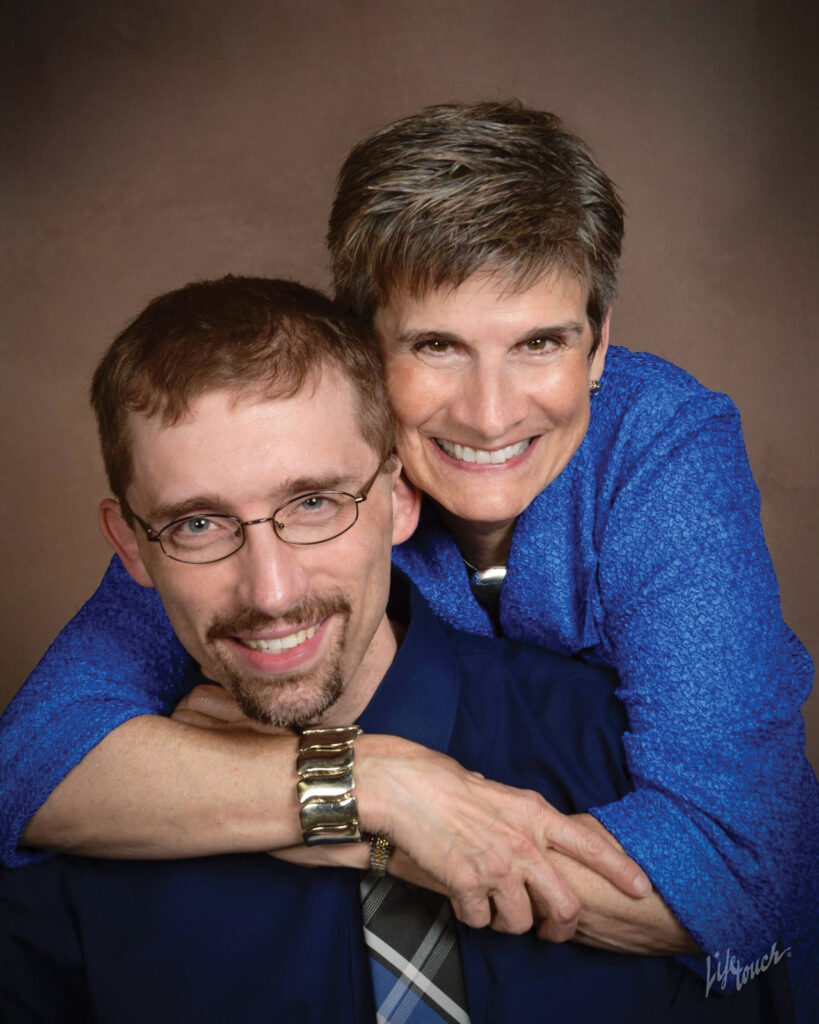Survey says: Services and need outnumber providers.
Try to picture this image: If you could line up all the Missouri children and youth with a behavioral health concern and space them three feet apart on I-70, the line would reach 206 miles, or roughly the distance from Kansas City to Wentzville. Now use the same parameters for lining up the number of child and adolescent psychiatrists in the state.
You’ll only need one and a half football fields for that line.
That illustration from the National Alliance on Mental Illness, or NAMI, is an important perspective and context for any conversation about the state of mental health care in Boone County and Columbia, which benefits from a one-quarter cent sales tax for children’s mental health services. That county tax, passed with 57 percent voter approval in 2012, has generated about $59.5 million since its inception. The Boone County Children’s Services Board approves expenditures, which have funded a variety of preventive services in partnership with school districts, several nonprofit providers, and targeted programs aimed at addressing mental health needs before they become chronic or lead to incidents or crimes that require police involvement.
The annual report that details funding and programs show success in preventing suicide and diverting youths from the legal system to care providers — with one glaring exception. The number of child and adolescent psychiatrists — and mental health providers in general — is still not adequate for providing the services.
Covered by insurance, but check the fine print.
The shortage of psychiatrists for adults is also troubling, state officials noted in a 2021 budget report. One of the more common observations — and incredible frustrations for families in need — is that waiting lists for those services can be as far as nine months or a year long. And while health insurance plans cover mental health care, those policies often limit the number of visits for therapy or cap the amount that can be spent on other treatments for mental and behavioral health problems.
All 10 health insurance plans offered on the public marketplace, or Obamacare, for 2023 in Boone County have mental health benefits, each with varying levels and allowances for coverage. To qualify for coverage, a diagnosis is required, which is where psychiatrists fill a vital role.
“We tend to see mental health differently than we do general health. But it’s all health,” says Janet Thompson, Boone County northern district commissioner. The avoidance of candid discussion about mental health — and accepting it as equally as physical health, she says — clouds the way the topic is discussed and how it is treated in public policy decisions.
“Mental health diseases are the only non-casserole diseases,” Janet says. “If someone has cancer, you take a casserole. But if it’s a mental health challenge, people run away.” That attitude too often affects how or whether policymakers put funding toward meeting the needs, she adds.
Is there an Rx for the shortage?
The Missouri Department of Mental Health lists increased employment, decreased incarceration, reduced strain on families, and decreased costs for future, higher levels of care among the benefits of mental health care.
The children’s mental health sales tax puts Columbia and Boone County ahead of similarly sized cities and counties. Only a dozen other counties in the state have such a tax and a few have general mental health funding that comes from property tax levies. But most of the state qualifies as a mental health desert simply because of the lack of qualified providers.
What makes a provider qualified to treat mental illness — and why can’t that treatment be provided by primary care or family physicians?
Psychiatrists have specialized training to diagnose and treat mental health disorders. Whether the patient is a child or an adult, it’s a psychiatrist who is best qualified to prescribe medication and other treatments for mental and behavioral health. Without a diagnosis, health insurance either won’t cover or will limit some medical interventions. A recent study by the American Academy of Pediatrics showed that 65 percent of pediatricians surveyed reported they lacked training in the treatment of children and adolescents with mental health problems; 40 percent said they lacked the confidence to recognize these health concerns.
Surveys of general practice or primary care providers show similar results.
From grassroots to the ballot.
New programs, including the Missouri Child Psychiatry Access Project, are now in place to provide training and support to help participating pediatric care providers be better equipped to care for children with mild to moderate mental health concerns. Some of those approaches are being offered to primary care physicians and their staffs, and a peer specialist program is in the pilot project stages as a way of filling the gap for intervening in more severe cases when specialists don’t have quick access for care.
The Boone County children’s mental health tax was accomplished as a result of the initiative petition process, with a dedicated group of advocates working through the peak of summer heat in 2012 to gather enough signatures to require the county commission to put the measure on the November ballot. Among the plethora of issues on the ballot was the election of a new northern district commissioner, with Janet winning with 54 percent of the votes in the county’s northern district.
With a staggering 79.3 percent voter turnout, the children’s services tax, listed as Proposition 1 on the ballot, earned 57 percent of the vote for passage. (The tally was 41,388 votes in favor and 30,917 votes against.)
Before turning her attention to the role and tasks of a county commissioner, Janet was an attorney with the state public defender’s office. She was often assigned some of the most difficult criminal cases and has the unenviable experience of being a witness for a client’s execution. Those experiences have made her a strong advocate for the 13th Judicial Circuit’s mental health court, the children’s mental health tax, and other measures to provide crisis intervention — rather than arrest — when dealing with mental health challenges.
Janet says her first “wake up call” came more than 30 years ago when the state began closing psychiatric hospitals to cut its budget.
“And my caseload skyrocketed,” she recalls. “There’s public outrage if a hospital is shut down. But not if it’s a mental hospital.”
Whether there’s public recognition or discussion about mental health needs and access to services — and whether or why there’s a shortage of providers — Janet says those factors have ripple effects.

Heather Harlan is a Columbia/Boone County Public Health and Human Services department health educator, as well as a long-time facilitator for NAMI events and meetings in Columbia and Missouri. (The city/county health department also facilitates family support group meetings.) Heather is personally familiar with — and painfully aware of — the gaps in local mental health services. Her son, Micah, died by suicide in February 2019.
“People don’t know that you may have to wait quite a while” for a psychological assessment or a psychiatric appointment, she says. “I blame my son’s death on his broken brain and his mental health condition — and a broken system.”
He was released from a hospital in May 2018 but had to wait four months for a follow-up assessment.
“Someone with diabetes, if their numbers are so bad, they have to be hospitalized in May, you don’t tell them, ‘We’ll get you in [for an assessment] in August,” Heather adds. She describes her son as a “very bright man” who died just a few days short of his 39th birthday, and just a few months before he was to graduate with an English degree from Columbia College. His degree was awarded posthumously.
“He had struggled with mood issues for most of his life,” she says, adding that there were also other neurological issues. “He has said over and over, ‘I feel like I’m trying to run with a broken leg.’”
“I blame my son’s death on his broken brain and his mental health condition — and a broken system.”
– Heather Harlan
He did not have substance abuse issues — he didn’t use alcohol and didn’t smoke or use other drugs — though he took medication that helped him “feel like myself,” Heather says.
“By February 2019, it all just caught up with him,” she explains. “The perfect storm of despair, depression, and opportunity.”
The shortage of providers, as shown by a 2014 report commissioned by the Boone County Children’s Services Board and a follow-up 2019 report, and Boone Hospital closing its psychiatric unit a few years before that, is not a new challenge. (The hospital, operated at that time by BJC Health Care, said that unit was shut down because the hospital could not hire psychiatrists to keep the unit functioning.)
Bright spots: ‘This kid’s still alive.’
One of the bright spots of the county’s mental health tax, which is limited for use with children and their families, is the Bridge program that provides mental health screening to some 26,000 public (and some private) school students. The screenings and other parts of the program provide a trove of data — missing in most counties and communities in the state — that helps the children’s services board decide where to allocate the sales tax resources.
Janet relates one example that she is certain has been multiplied numerous times. A teacher was going through an evaluation with a fourth grader in one Boone County school and the child not only showed signs of a mental health disorder, but “the kid had the plan for completing suicide. A fourth grader. It was just a matter of when.”
With quick intervention and follow up services for the child and her family, Janet explains, “This kid’s still alive.”

“If someone has cancer, you take a casserole.
– Janet Thompson, Boone County Northern District Commissioner
But if it’s a mental health challenge, people run away.”
Another service created and funded by the county’s dedicated sales tax is the Family Access Center of Excellence (FACE) of Boone County. The FACE center is often the first point of contact for children and families experiencing a mental health crisis. FACE provides screenings and assessments and makes referrals to providers for appropriate treatment or intervention.
Those are positive outcomes for individuals who have access to screenings and care. The scenario is more challenging for adults, and having health insurance isn’t a cure-all, especially if access is limited or there aren’t enough providers. Many private mental health therapists and clinics — those not associated with a larger organization — eschew health insurance because the complexities and requirements drive up overhead costs. Some of those clinics offer sliding-scale payment options; others do not.
The state budget has remained steady with about 7 percent of total spending dedicated to the Department of Mental Health. (That’s about $2.48 billion in the fiscal year 2021 budget.) Those funds are used for access to care for some 170,000 adults and children who struggle with serious mental illness, substance abuse, or developmental disabilities. A network of more than 1,300 community-based nonprofit partners contract with the department to provide those services.
In Columbia, individuals and families experiencing mental health challenges can connect with NAMI Columbia, which has on-site gatherings at Broadway Christian Church and virtual support connection.
Connect with NAMI Columbia
namimissouri.org/support-and-education
facebook.com/NAMIColumbiaMO
instagram.com/NAMIMissouri
573-634-7727








